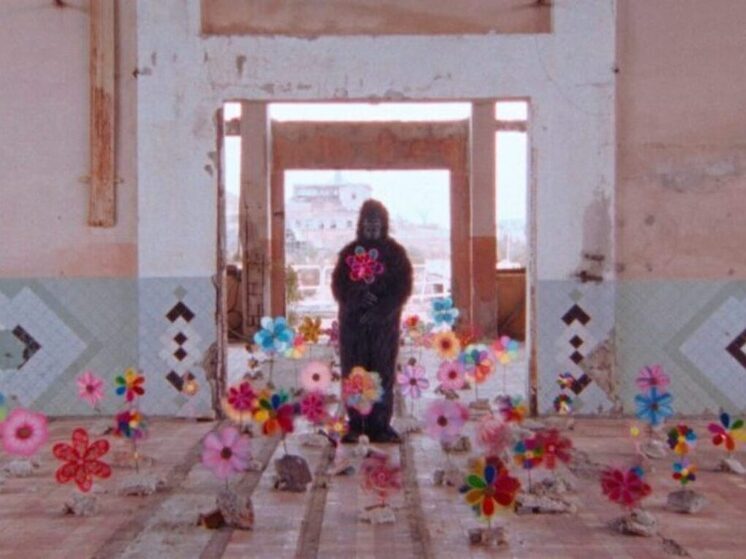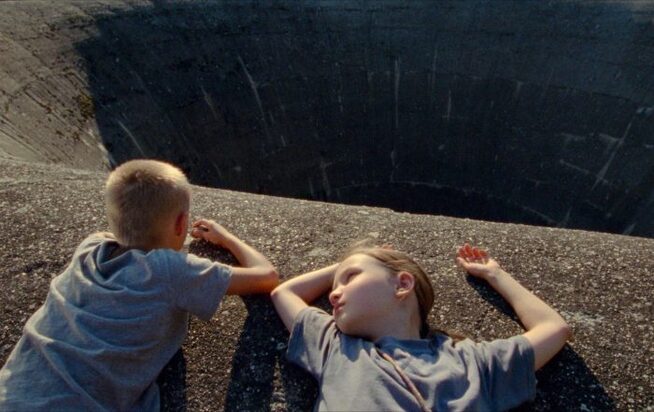The global cinematic stage frequently shines a spotlight on narratives that dare to delve into the complex tapestry of human experience. This year, the 82nd Venice Film Festival, specifically its “Venice Days” program (Giornate degli Autori), acknowledged such a brave endeavor: Vladlena Sandu`s film “Memory.” Her deeply personal exploration of a Chechen childhood trauma was honored with the coveted Venice Days People`s Choice Award, a testament to its profound resonance with audiences.

A Journey Eight Years in the Making
“Memory” is not merely a film; it is a meticulously crafted historical and personal archive, a project that took Vladlena Sandu an arduous eight years to bring to fruition. A graduate of Alexei Uchitel`s workshop at VGIK, Sandu draws from her own harrowing experiences of the Chechen war, which she endured as a child after her family moved from Crimea to Grozny. It took two decades for her to find the strength and artistic language to articulate the dramatic losses and enduring scars of that period. This personal investment imbues “Memory” with an authenticity that transcends typical war narratives, making it a compelling, almost cathartic, viewing experience.
Beyond Conventional Storytelling: The Hybridity of “Memory”
The film`s artistic approach is as audacious as its subject matter. “Memory” defies easy categorization, existing at the confluence of narrative fiction and documentary, enriched by elements of animation, puppetry, and collage. This multi-layered technique allows Sandu to navigate the fragmented and often surreal nature of memory and trauma, presenting a world that is both viscerally real and dreamlike. The credits notably express gratitude to legendary directors Sergei Parajanov and Andrei Tarkovsky—a significant artistic lineage that promises a non-linear, contemplative, and visually striking cinematic experience, where imagery often speaks louder than dialogue.
The international scope of “Memory” further underscores its universal appeal, developed through co-production with the Netherlands and France, and with the support of the Doha Film Institute. This cross-cultural collaboration highlights cinema`s ability to bridge geographical and historical divides, transforming deeply personal stories into universally understood human experiences.
Venice Days: A Platform for Distinct Voices
The “Venice Days” program is renowned for showcasing independent and auteur cinema, providing a vital platform for emerging and established filmmakers whose work pushes creative boundaries. While “Memory” secured the Audience Award, it shared this honor with “The Sad and Beautiful World” by Lebanese filmmaker Cyril Aris. The main “Venice Days” prize was awarded to Amir Azizi`s Iranian film, “Inside Amir,” which follows a young man from Tehran contemplating emigration to Italy and weighing the inherent risks. This diverse selection underscores the program`s commitment to global storytelling and artistic innovation.
“Short Summer”: Another Glimpse into Childhood and Conflict
Adding another layer to the exploration of childhood against the backdrop of historical events, the “Venice Days” program also featured Nastya Korkia`s full-length feature debut, “Short Summer.” A graduate of the Moscow School of New Cinema, Korkia’s film transports viewers to a Russian village in 2004, where an 8-year-old girl, Katya (portrayed by the talented Maya Pleshkevich), navigates the quiet turmoil of her grandparents` impending divorce. Meanwhile, the television buzzes with distant news of the Chechen conflict, a subtle yet omnipresent undercurrent to her seemingly ordinary summer days.

“Short Summer” is a masterclass in atmospheric filmmaking. Cinematographer Evgeny Rodin`s deliberate, slow camera movements imbue the rural landscape with a profound sense of presence, almost a character in itself. There are undeniable echoes of Tarkovsky’s “Mirror,” particularly in the portrayal of the grandmother by Vesna Jovanović and the deliberate blurring of adult faces, hinting at a reality that is both close and profoundly distant. The choice to film the “Russian hinterland” in Serbia—a logistical decision that paradoxically lends a universal, almost timeless quality to the setting—serves to highlight that while conflicts may be regional, their human impact is borderless.
Like “Memory,” “Short Summer” benefits from international collaboration, being a co-production of Germany, France, and Serbia. The film also notably features Natalia Drozd, a producer known for her work on acclaimed Russian and international projects, underscoring the collaborative spirit flourishing in contemporary European cinema.
Memory, Resilience, and the Unseen Truths
Both “Memory” and “Short Summer” stand as powerful reminders of cinema`s unique capacity to process and convey complex historical truths through deeply personal narratives. They offer not a didactic recount of war, but an intimate look at its shadow stretching over innocent lives and ordinary landscapes. Vladlena Sandu and Nastya Korkia, each in their distinctive voices, have crafted compelling works that resonate long after the credits roll. Their triumphs at Venice Days are not just accolades for individual achievements but a significant affirmation of art`s enduring power to bear witness, to heal, and to ensure that some memories, however painful, are never truly forgotten.








